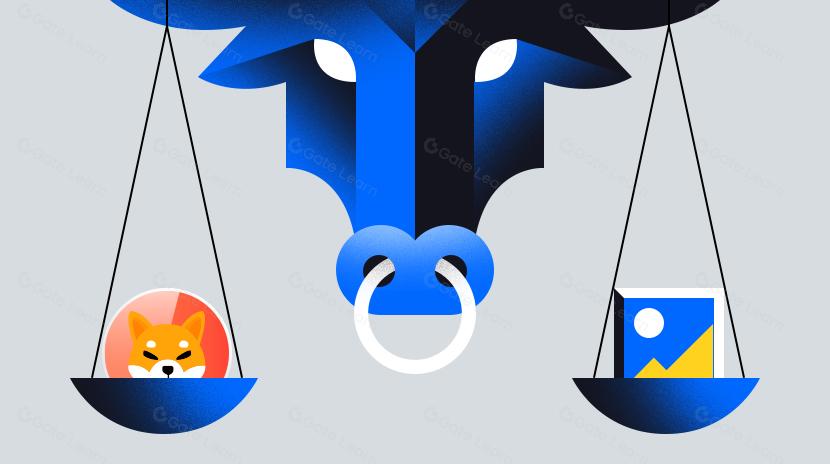Gbirb, Moonbirds Return from the Ashes
The NFT space is no stranger to volatility, but few projects have experienced the wild swings of Moonbirds. From its spectacular peak at 38.5 ETH to a dramatic plunge to just 0.22 ETH, Moonbirds pulled off an astonishing reversal in only three months.
The tide turned the moment Spencer acquired Moonbirds. From its meteoric rise to its collapse and eventual rebirth, Moonbirds has gone through one of the most extreme journeys in digital collectibles. Spencer stepped into the spotlight, transforming a forgotten project into the most sought-after NFT in the crypto world.
A Stellar Launch
On April 16, 2022, Moonbirds—created by Digg co-founder Kevin Rose—made its official debut, minting at 2.5 ETH. All 7,875 NFTs allocated to the whitelist sold out within 48 hours. Buyers believed they weren’t just acquiring pixelated owls, but a core pass to the PROOF ecosystem—a highly exclusive club limited to 1,000 top NFT collectors and artists.
Launch day wasn’t without drama. COO Ryan Carson was caught buying up rare Moonbirds, spending $580,000 by leveraging inside knowledge about rarity traits. This blatant “sniping” amounted to clear-cut insider trading. The Discord community called out the unethical conduct, and amid mounting criticism, Carson resigned nine days later to found his own NFT fund, 121G.
Remarkably, this incident didn’t derail Moonbirds’ momentum. The market stayed on fire. The floor price rose from 3 ETH to 6 ETH, then to 13 ETH, and finally soared to 38.5 ETH. Within a week, early minters saw a stunning 15x return—one of the fastest wealth creation stories in NFT history.
Notably, Moonbirds introduced a “Nesting” feature, essentially a form of Soft Staking. If you nested your Moonbirds, they were locked in your wallet—untradeable, but eligible for additional rewards. This clever mechanism turned short-term flippers into long-term holders.
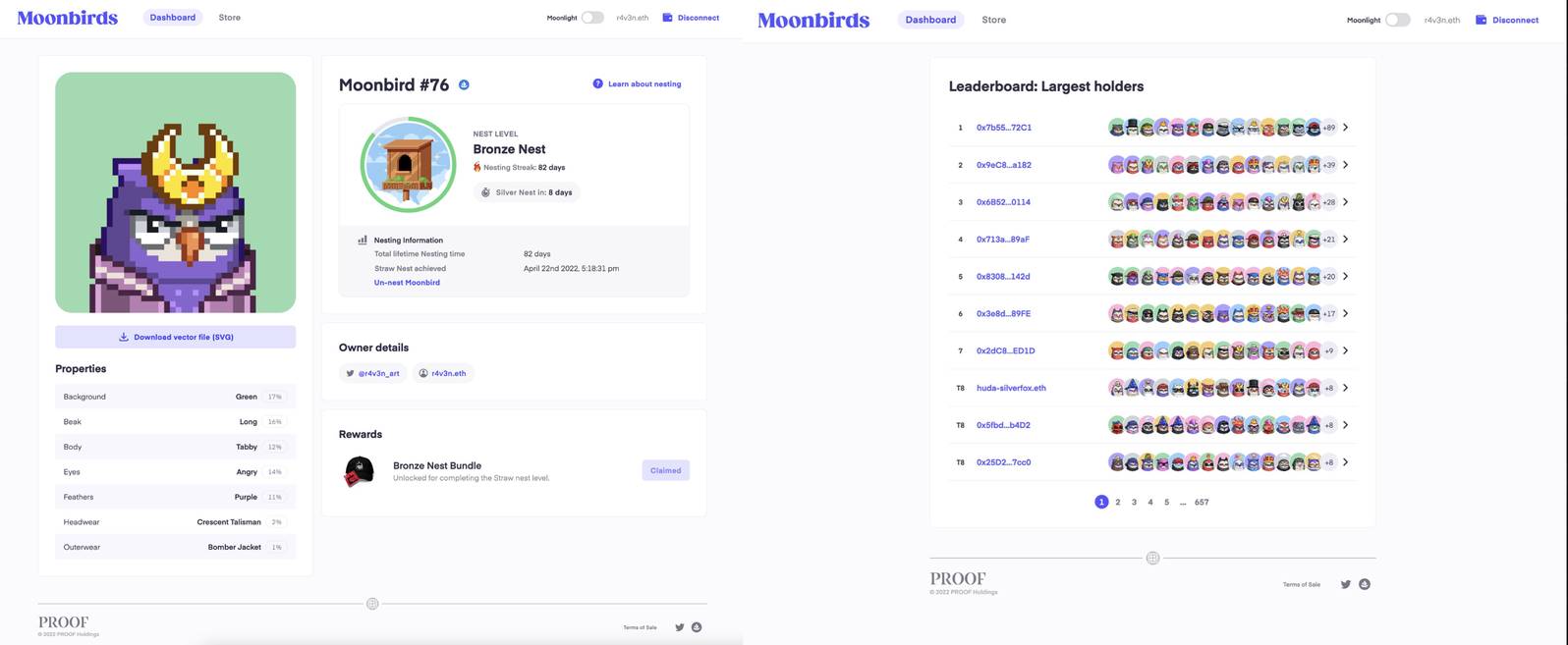
Collapse of Trust
The turning point came quickly. On August 5 of that same year, Kevin Rose stunned the community by unilaterally announcing—without any community input—that Moonbirds would shift to a CC0 license. This move stripped holders of their exclusive commercial rights to the NFTs, making it possible for anyone to use Moonbirds’ images for business purposes.
For many, this felt like a blatant betrayal. It was the first real rift between leadership and the community, casting a long shadow over Moonbirds.
Influenced by artists like XCopy, CC0 was trending in the art world—a way to encourage derivatives, memes, and merchandise, boosting exposure. While this made sense for single artworks, it clashed with the very nature of profile picture (PFP) collections. PFPs are built on exclusivity and identity. That’s why holders invest their time and money.
The backlash was fierce.
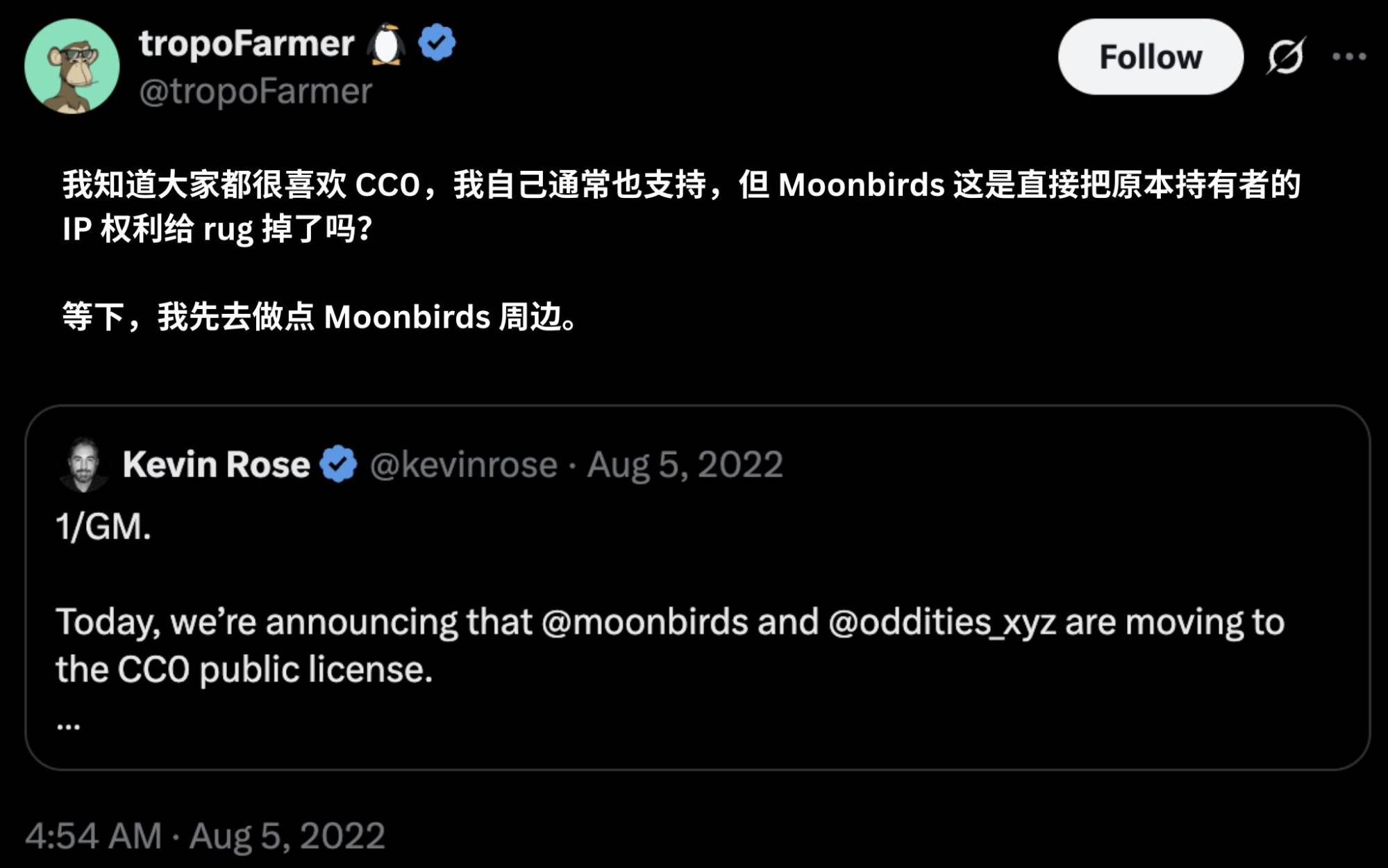
Three years later, X (Twitter) influencer @waleswoosh recalled that the CC0 panic was actually overblown—few holders ever successfully commercialized their PFP rights anyway.
But in that moment, Kevin Rose’s misstep and poor communication ignited widespread frustration within the community.
Moonbirds’ decline began here.
From August 2022 to late 2023, Moonbirds’ floor price plummeted from 19 ETH to under 2 ETH.
Notably, at that time, nearly every project was pushing merch, and Moonbirds joined the trend by airdropping exclusive memorabilia to Nesting participants. The author personally received one—and wholeheartedly agreed with the sentiment expressed in the following comment.
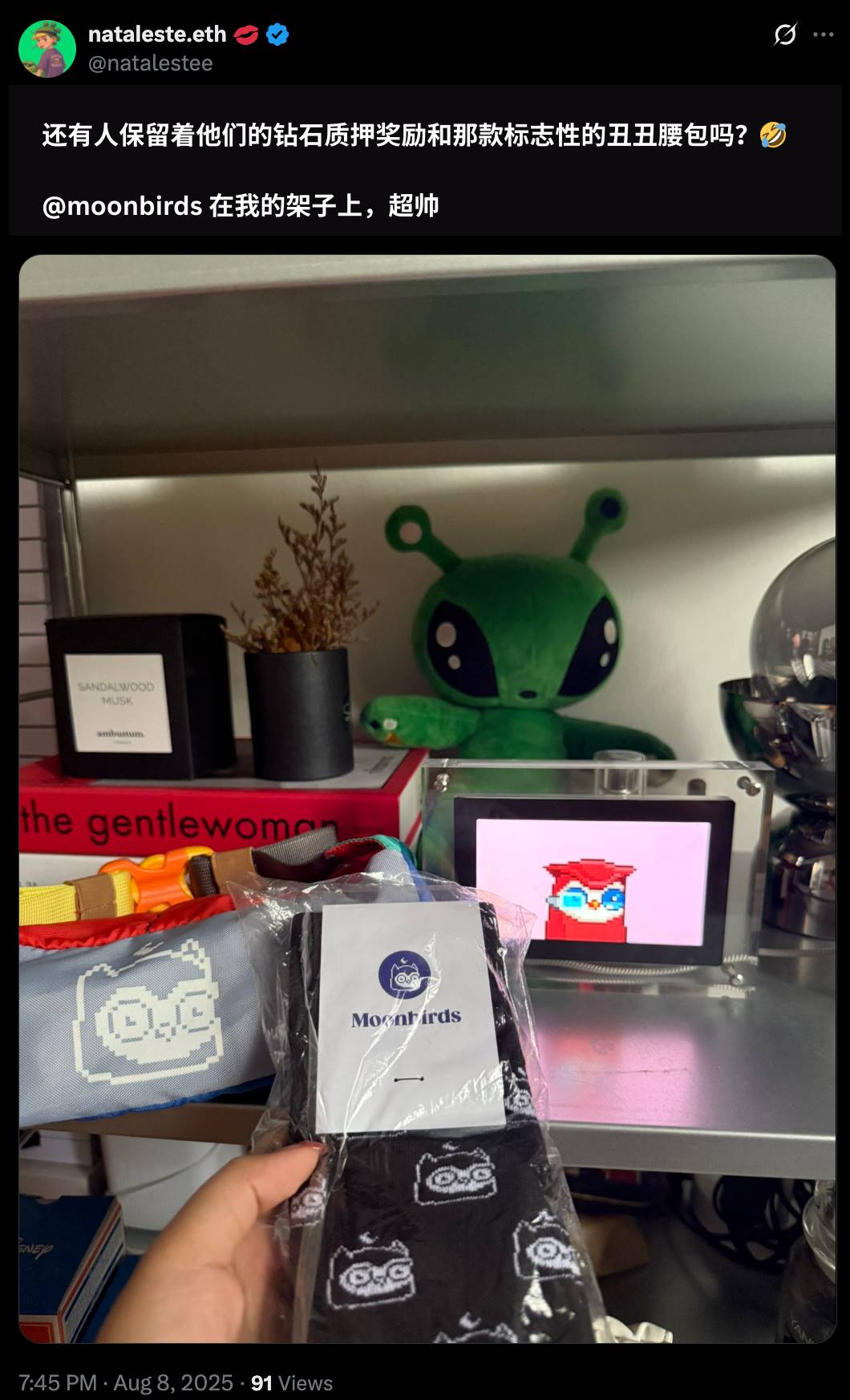
The Silent Era
In February 2024, Yuga Labs—parent company of Bored Ape Yacht Club—acquired Proof and its associated projects, including Moonbirds. News of the acquisition prompted OpenSea CMO Adam Hollander to call it “a mess,” bluntly labeling Moonbirds “one of the worst-run NFT projects in history—they made nearly $100 million and failed to deliver on their promises.”
The buyout brought a fleeting spark of hope. Holders were told Moonbirds would be integrated into the Otherside metaverse. The acquisition briefly pushed the floor price from 1.5 ETH to 2.5 ETH, but this rally lasted only two weeks. Yuga tried to mend the rift, reverting from CC0 to exclusive holder commercial rights and releasing new 3D avatars for animation and Otherside compatibility.
But the community remained unconvinced. By August 2024, the floor price crashed to 0.22 ETH, recovering only slowly to 0.8 ETH by year-end.
For most, the project seemed all but dead.
Kevin Rose openly admitted to using ketamine to manage the pressure of running Moonbirds. After the Proof acquisition, some colorful comments appeared in the community forums.
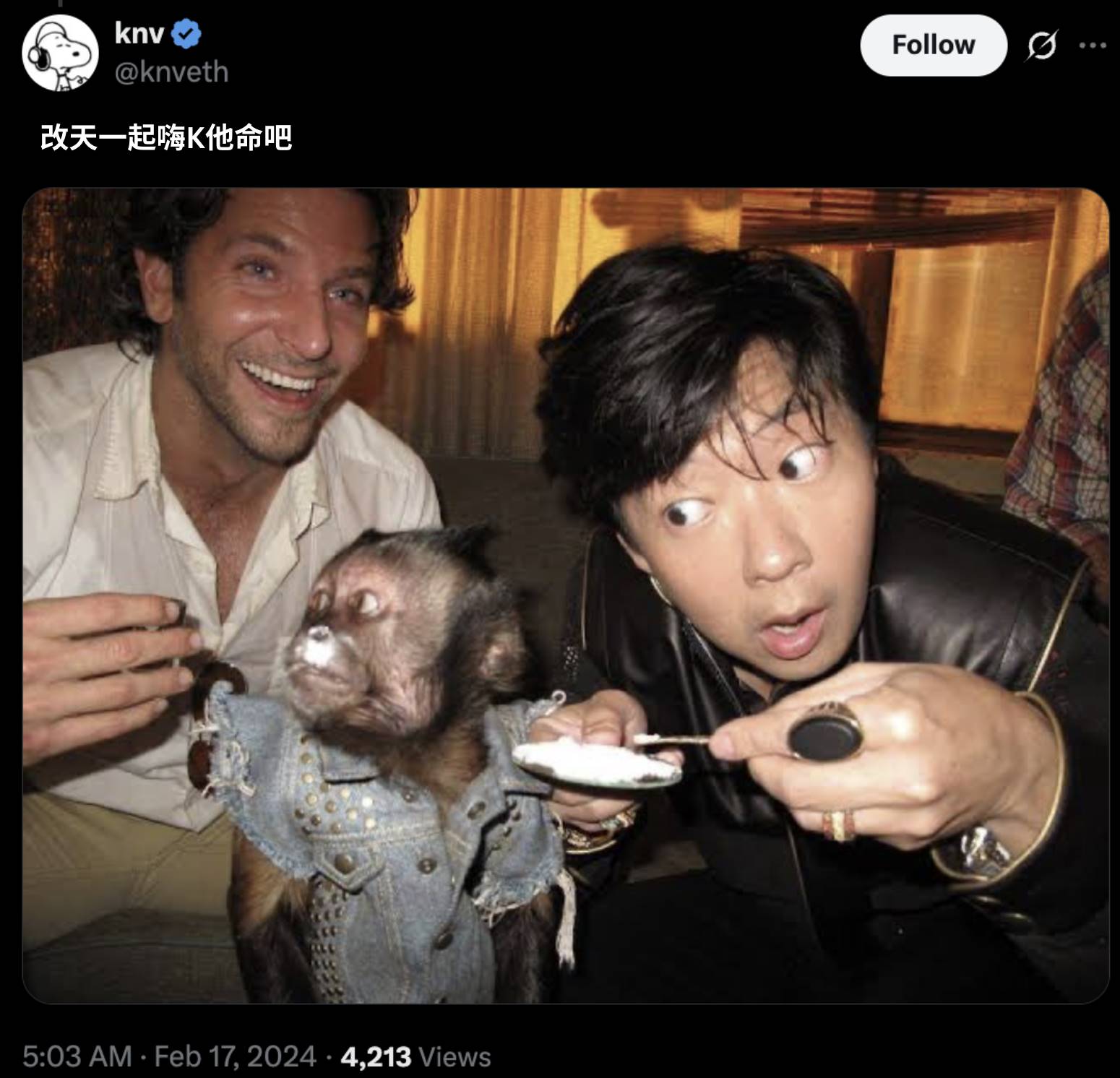
Who Is Spencer?
If you’re asking the same question, you’re in the right place.

On May 31, 2025, news broke on X (Twitter) that Moonbirds had been acquired by Orange Cap Games. A Yuga Labs co-founder stated in the official announcement: “Moonbirds needs a team that makes the Birds their central focus, and Orange Cap Games is the right choice to unlock their potential.”
Spotlight on Spencer, founder of Orange Cap Games. From this moment, Moonbirds’ trajectory reversed.
Unlike the usual “grand visions,” Spencer didn’t unveil an elaborate roadmap. He openly declared: “We’re not here to fulfill Moonbirds’ old vision—we’re building our own. Some may not like it, and that’s fine.”
This straightforwardness was just what the community needed. After CC0 controversies and leadership shakeups, Moonbirds holders wanted substance—not empty promises. Spencer rebuilt trust the hard way: relentlessly posting about Moonbirds, patiently addressing every community question, and shouldering all criticism. He became the anchor the community needed most.
Moonbirds found new life, and community cohesion reached all-time highs.
On July 21, Spencer reported on X that during Orange Cap Games’ first 51 days: OpenSea adopted Moonbirds as its official avatar; the collection topped Ethereum’s NFT trading charts for five straight days; the Telegram community surpassed 25,000 active members; and $1.4 million poured into the prize pool earmarked for sticker purchases.
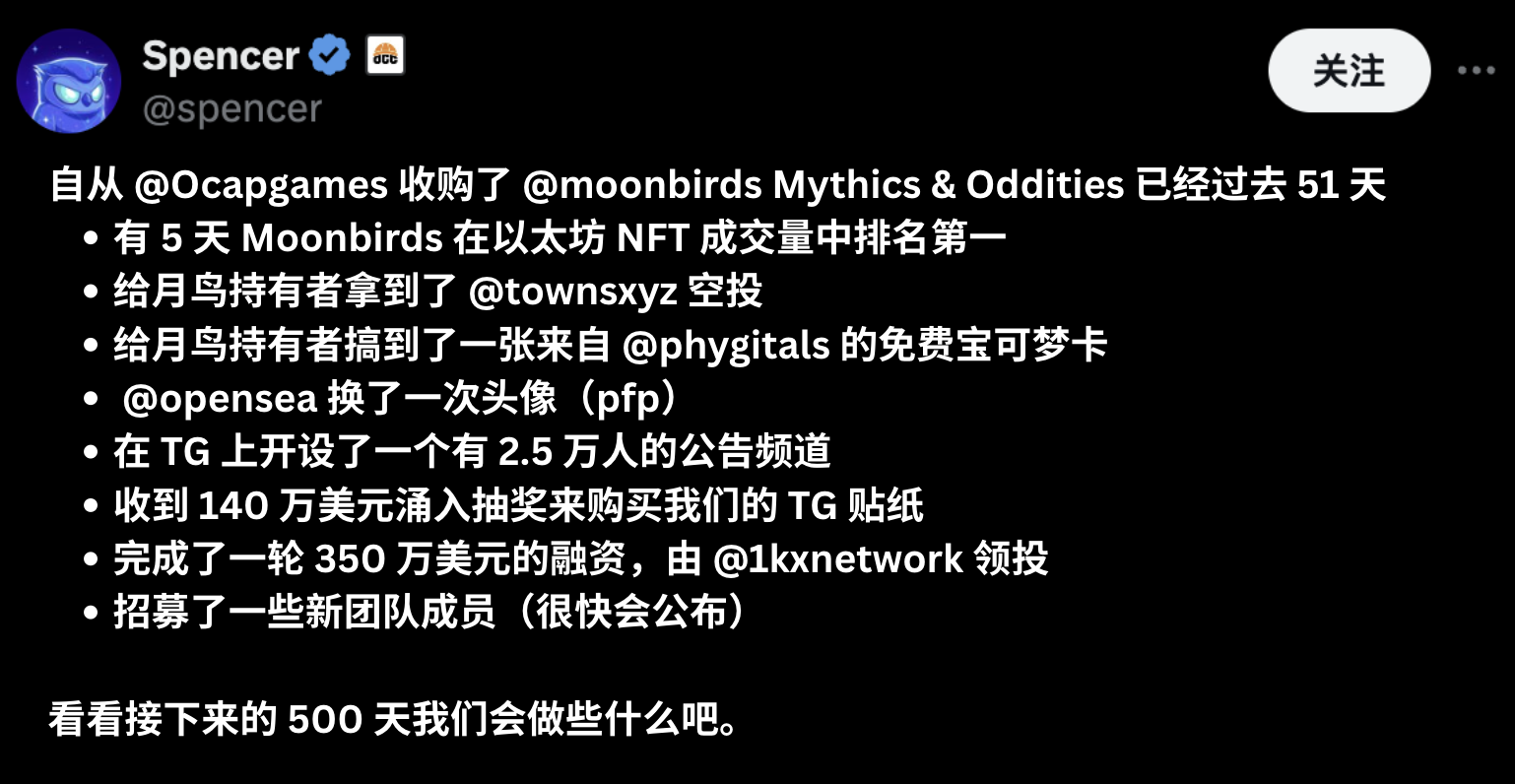
Calling the Birb Army
From a low of 0.3 ETH at the time of Spencer’s takeover to 3.9 ETH last week, Moonbirds’ floor price rocketed over 1,000%. What looked dead at the start of 2025 is now soaring again.
This was no accident. In the depths of the 2023 NFT winter, Spencer made a famously bold move: scooping up 144 Pudgy Penguins from Three Arrows Capital’s bankruptcy liquidation at a mid-six-figure cost, and openly declaring he wouldn’t sell. What looked “crazy” at the time ultimately netted him more than $10 million.
That “diamond hands” approach sent a clear message: Spencer is a true builder, not a short-term speculator.
Through Orange Cap Games, Spencer turned Pudgy Penguins’ IP into the Vibes TCG card game, generating over $1.5 million in revenue and logging more than 350,000 online matches. This real-world success proved NFTs aren’t just speculative chips—they can break into the mainstream as authentic IP brands.
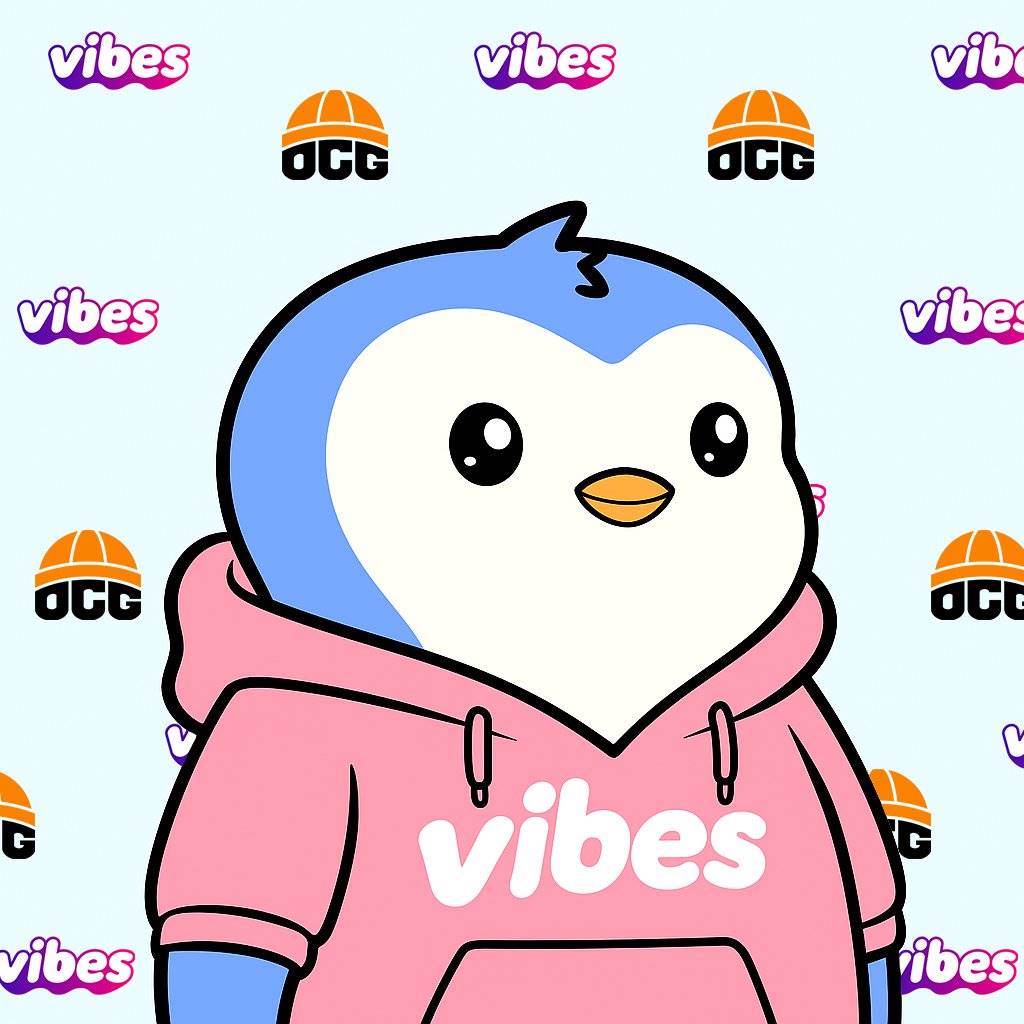
When Spencer acquired Moonbirds, the community naturally pinned their hopes on him—maybe Moonbirds could mirror Pudgy Penguins’ comeback. After all, Pudgy Penguins had also clawed their way back under the right leadership.
This familiar story arc led to a profound change in mindset—from when to sell to why keep holding. Moonbirds stopped being just a flipper’s token and started becoming a genuine brand asset in the making.
On X, this meant Moonbirds reclaimed Crypto Twitter’s attention, driven by high engagement. Spencer rallied the Birb Army one post at a time, carving out a significant social presence for Moonbirds.
For the Moonbirds community, the price rebound is just the surface. What really bounced back is conviction.
Spencer’s formula is simple: the best marketing isn’t flashy roadmaps or empty mega-promises. Instead, it means consistently delivering value and making the community feel like co-builders in something meaningful.
This is a bet on Spencer—and so far, the market is voting in his favor.

Moonbirds: The Return
For Moonbirds, the story is just getting started.
In a recent interview, Spencer outlined a staged plan: Step 0 is reigniting the community, Step 1 is developing Moonbirds as an IP platform, and Step 2 focuses on product delivery and partnerships.
“In five years, I want Moonbirds to be a household name—a ubiquitous IP with physical products on store shelves and a digital presence that brings new people into the space.”
The momentum is already here. On August 18, 2025, Moonbirds became the first NFT project to top the Kaito rankings, a sign its impact is moving beyond the core crypto community. At the same time, speculation about a potential token and Spencer’s ties with Pudgy Penguins founder Luca Netz are fueling expectations even further.
Moonbirds are back—and this time, they may be here to stay.
Disclaimer:
- This article is republished from [TechFlow], and copyright belongs to the original author [June, TechFlow]. For republication concerns, please contact the Gate Learn team, who will promptly address the matter per relevant procedures.
- Disclaimer: The views and opinions expressed are solely those of the author and do not constitute investment advice.
- Other language versions of this article were translated by the Gate Learn team, and may not be copied, distributed, or plagiarized without explicit reference to Gate.
Related Articles

Top 10 NFT Data Platforms Overview

7 Analysis Tools for Understanding NFTs
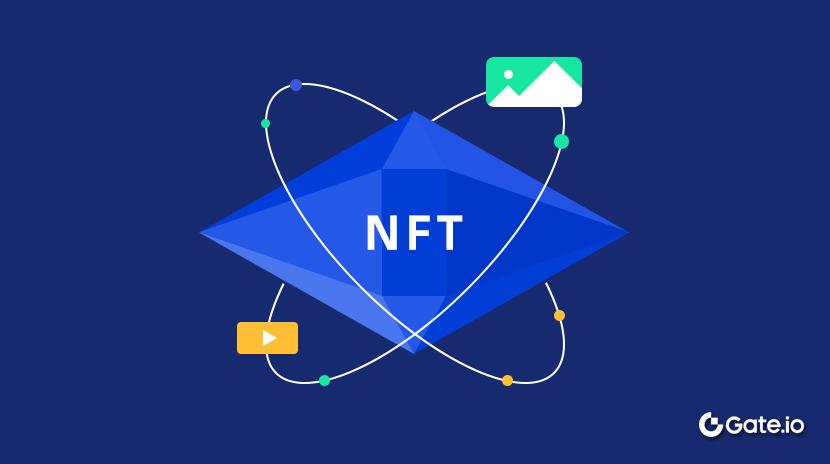
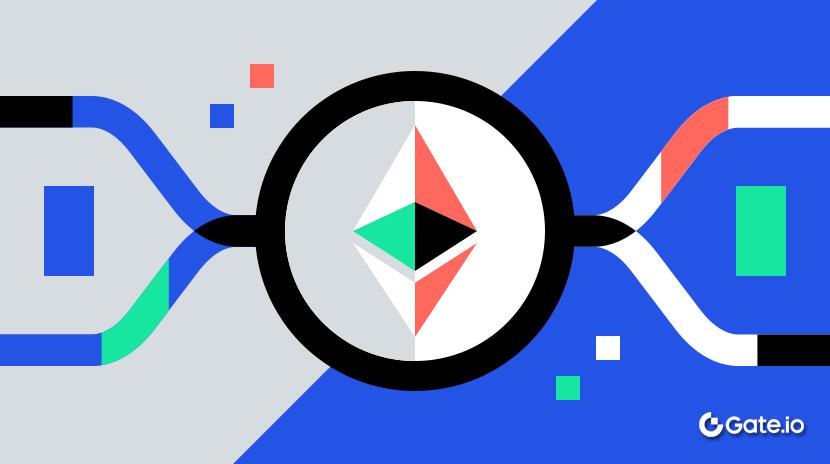
What is NFTs Marketplace Aggregator?

What is Galxe (previously Project Galaxy)? All You Need to Know About GAL 2025
